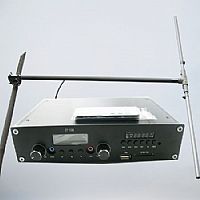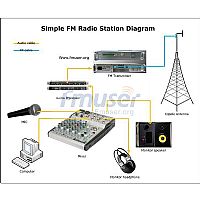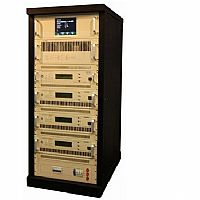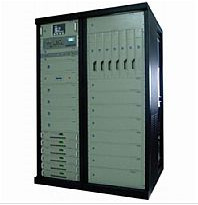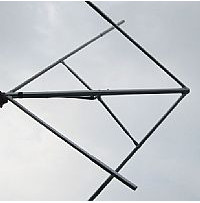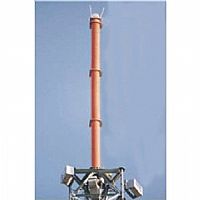In the era of mobile Internet, mobile phones integrate more and more RF technologies, such as dual-mode/multi-mode phones that support multiple standards in LTE, TD-SCDMA, WCMDA, CDMA2000, HSDPA, EDGE, GPRS, and GSM, which can realize VoIP , Wi-Fi, GPS, RFID, NFC mobile phones for navigation, automatic payment, and TV reception. The use of multiple RF technologies makes the design of mobile phones more and more complex.
Basic composition of mobile phone radio frequency technology and mobile phone radio frequency module
The radio frequency part of a 3G mobile phone consists of two parts: radio frequency receiving and radio frequency sending. Its main circuit includes antenna, wireless switch, receiving filter, frequency synthesizer, high frequency amplification, receiving local oscillator, mixing, intermediate frequency, transmitting local oscillator, power amplifier control, Power amplifier and so on.
In general, the key components of the basic mobile phone radio frequency part mainly include RF transceiver (Transceiver), power amplifier (PA), antenna switch module (ASM), front-end module (FEM), duplexer, RF SAW filter and Synthesizer, etc., as shown in the picture. The following will focus on the introduction from three basic parts:
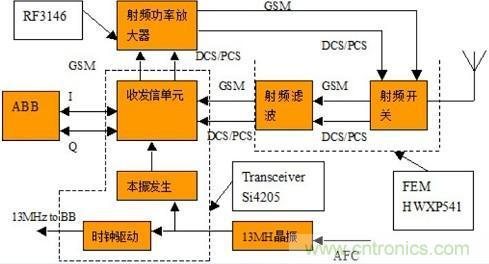
Figure Basic structure diagram of mobile phone radio frequency module
Mobile phone radio frequency module power amplifier (PA)
The power amplifier (PA) is used to amplify the radio frequency signal output by the transceiver. The power amplifier field is an independent field with thresholds. It is also a component that cannot be integrated in a mobile phone. It is also the most important component in a mobile phone. The performance of the mobile phone, the footprint, the call quality, the strength of the mobile phone, and the battery life are all determined by the power The amplifier decides.
The main manufacturers in the power amplifier field are RFMD, Skyworks, TriQuint, Renesas, NXP, Avago, ANADIGICS. Now, Qualcomm, which was originally a PA enterprise partner, has also directly joined the PA market. It will launch PA produced in CMOS process in the second half of 2013, supporting LTE-FDD, LTE-TDD, WCDMA, EV-DO, CDMA 1x , TD-SCDMA and GSM/EDGE seven modes, the spectrum will cover more than 40 frequency bands in global use, and announced its entry into the PA industry with the advantages of multi-frequency and multi-mode.
After the PA market has experienced the LDMS PA "challenge" era, gallium arsenide (GaAs) PA has become the "challenge" of the PA market in the 3G era. TriQuint, which led gallium arsenide to attack the PA market, is actively laying out the blueprint for gallium arsenide, launching a high-efficiency multi-frequency multi-mode power amplifier MMPA for the expansion of 3G/4G smart phones.
Qualcomm is attacking the PA market with CMOS PA. In the future, PA may become part of the mobile phone platform, and there will be a phenomenon of mobile phone chip platform companies acquiring and merging PA companies.
How to integrate these power amplifiers of different frequency bands and formats is an important topic that the industry has been studying. There are currently two solutions: one is a fusion architecture, which integrates radio frequency power amplifiers with different frequencies, and the other is an integration along the signal link, that is, PA and duplexers are integrated. The two schemes have their own advantages and disadvantages and are suitable for different mobile phones. Converged architecture, PA has a high degree of integration, which has obvious size advantages for more than 3 frequency bands, and has obvious cost advantages for 5-7 frequency bands. The disadvantage is that although the PA is integrated, the duplexer is still quite complicated, and there is switching loss when the PA is integrated, and the performance will be affected. For the latter architecture, the performance is better. The integration of the power amplifier and the duplexer can improve the current characteristics, which can save tens of milliamps of current, which is equivalent to extending the talk time by 15%. Therefore, the industry's suggestion is to use a converged architecture when there are more than 6 frequency bands (not counting 2G, but 3G and 4G), and when less than four frequency bands, use the PA and duplexer integrated solution PAD. At present, TriQuint can provide two kinds of architecture solutions, RFMD mainly prefers the architecture of fusion PA, and Skyworks prefers the multi-frequency PAD solution.
Our other product:


